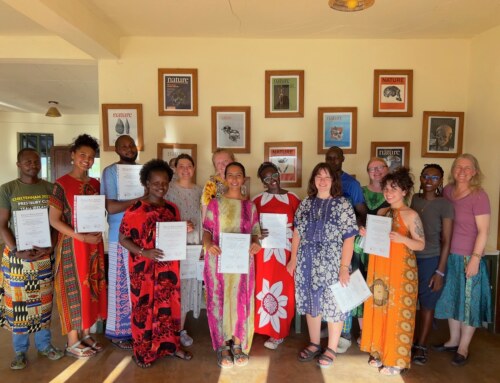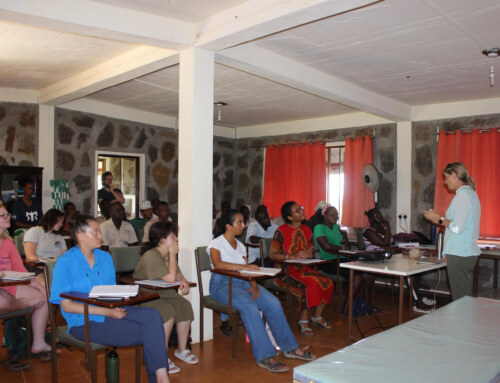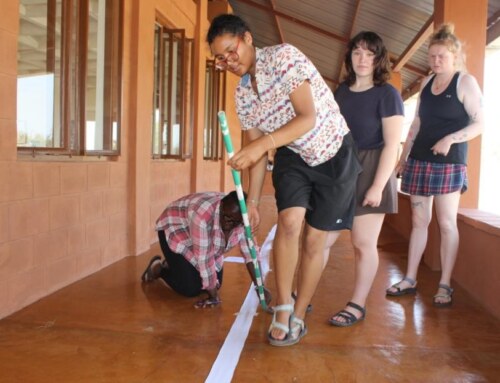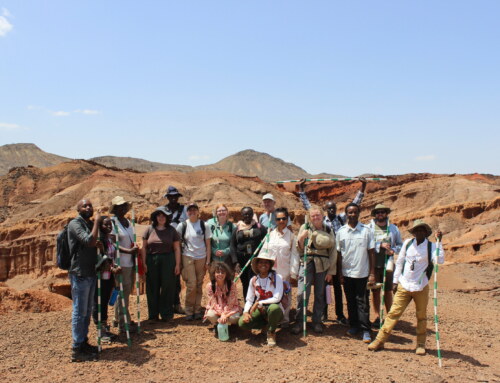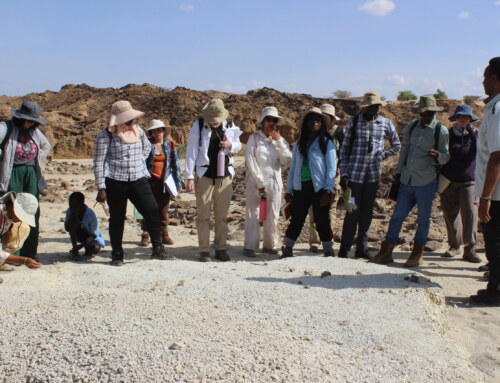Happy new year! I hope you all had peaceful holidays. The Spring 2020 field school is off to a great start. The students arrived on the 15th of January and we spent the first three nights at the amazing Wildebeest Eco camp. The ambience is always so peaceful and the best part, a pool to cool off when the weather gets hot.
I am Winfred Wambui but people commonly call me Winnie. I am the field school resident director and its such an honor to be leading the field school team again. On the 16th of January, the team and I visited the Sheldrick elephant orphanage and the highlight of the moment was watching them running to get their bottles of milk. The newest addition to the herd was an 8 month old calf. They all looked very happy and peaceful despite losing their mother’s under tragic circumstances.
Later on, we visited the Giraffe Centre and they had more additions to the group, three beautiful calves. We also had the time to learn some facts about giraffes such as, an adult can see 3km away, the heart weighs 11kgs and pumps twice as much blood as that of a human adult.
The 17th of January was even better because the students got a chance to meet Dr.Richard Leakey, have a chat and get autographs. It was interesting to hear him talk about his journey in paleoanthropology, how Turkana Basin Institute came to be, and his affiliation with Stony Brook University.
We later on went to the National Museum of Kenya and the research scientists took us through some of the fossils at different departments.
Saturday the 18th January, it was time to head out to Mpala Research Centre, which is based in Nanyuki, north of the Equator. The team and I will be based here for the next two weeks as the students start classes. Dr. Dino Martins will be the lead professor teaching about the modern and ancient environments in East Africa. On our way there, we made a pit stop for lunch at Cape Chestnut restaurant which is located at the heart of Nanyuki town.

First picture of the group at Sheldrick Wildlife Trust. From behind (left): Amber, Joe, Michael, Medina (TA), Jared. Below from right: Clara, Becca,Emma and Zak.

It was Emma’s turn to feed the giraffe.


I wonder what they were all looking at. Then again, they can see 3kms away.

The highlight of the day; Spring 2020 team meeting Dr.Richard Leakey at the TBI office in Nairobi.

Students at the National Museum of Kenya.



A final picture at the National Museum of Kenya.

Students learning some facts about Giraffes (Giraffe Centre).

At the Equator on our way to Nanyuki town.

Lunch at Cape Chestnut before heading to Mpala Research Centre.

From left; Clara, Becca and Amber.

This was during a scenic drive in Mpala and the view was simply breathtaking.

